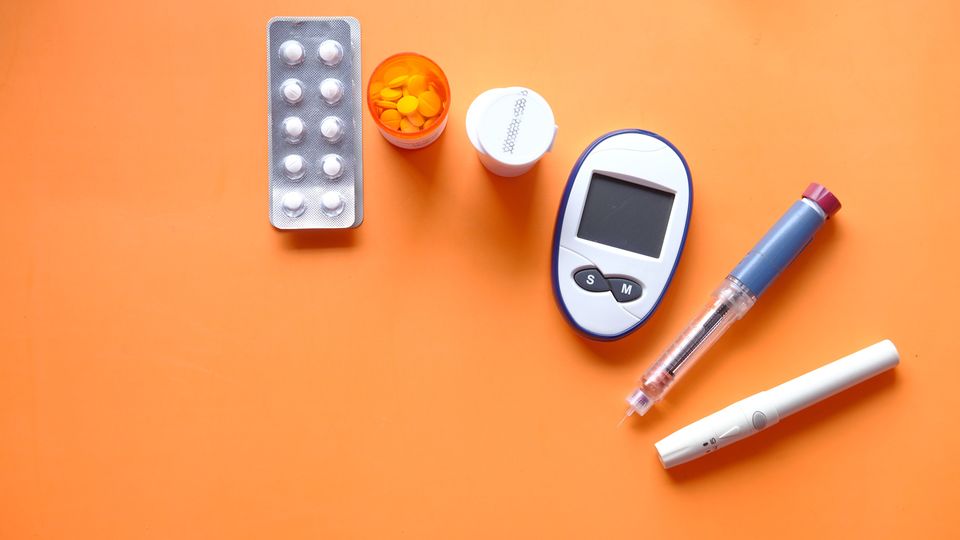While pharmacological interventions are crucial in managing blood sugar levels, incorporating non-pharmacological treatments into your daily routine can significantly enhance your overall well-being and quality of life. From dietary adjustments to exercise regimens and stress management techniques, various strategies can complement medical treatment and empower individuals to take control of their health. In this blog, we’ll delve into the realm of non-pharmacological treatments for diabetes, exploring effective methods to help you thrive with this condition.
Contents
What Is Non-Pharmacological Treatments?
 Non-pharmacological treatments are also known as non-drug therapies or non-medication interventions. It refers to a broad spectrum of approaches aimed at managing health conditions without the use of pharmaceutical drugs. These treatments encompass various lifestyle modifications, behavioral strategies, and alternative therapies that can effectively address symptoms, improve quality of life, and promote overall well-being.
Non-pharmacological treatments are also known as non-drug therapies or non-medication interventions. It refers to a broad spectrum of approaches aimed at managing health conditions without the use of pharmaceutical drugs. These treatments encompass various lifestyle modifications, behavioral strategies, and alternative therapies that can effectively address symptoms, improve quality of life, and promote overall well-being.
Non-pharmacological treatments recognize the importance of holistic approaches to health, acknowledging that factors such as diet, exercise, stress management, and social support play significant roles in disease prevention and management. These interventions are often used alone or in combination with pharmacological therapies to optimize treatment outcomes and address the multidimensional nature of health conditions.
What Are The Non-Pharmacological Treatments For Diabetes?
Non-pharmacological treatments for diabetes focus on lifestyle modifications and behavioral changes aimed at managing blood sugar levels, improving overall health, and reducing the risk of complications. Here are some key non-pharmacological treatments for diabetes:
Dietary Modifications
A balanced diet rich in fruits, vegetables, whole grains, lean proteins, and healthy fats forms the cornerstone of diabetes management. These foods provide essential nutrients, vitamins, and minerals while minimizing spikes in blood sugar levels. Monitoring carbohydrate intake is particularly crucial for individuals with diabetes, as carbohydrates have the most significant impact on blood sugar levels.
Choosing complex carbohydrates with a low glycemic index, such as whole grains, legumes, and non-starchy vegetables, can help maintain more stable blood sugar levels throughout the day. Portion control and meal timing are also essential strategies for regulating blood sugar levels. Eating smaller, more frequent meals can prevent large fluctuations in blood glucose levels.
Regular Physical Activity
Regular physical activity is a key component of diabetes management, offering numerous benefits for overall health and blood sugar control. Engaging in aerobic exercises, such as brisk walking, jogging, cycling, or swimming, helps improve insulin sensitivity, allowing cells to better absorb glucose from the bloodstream. Strength training exercises, such as weightlifting or resistance band workouts, also play a vital role in diabetes management by increasing muscle mass and further enhancing insulin sensitivity.
It is recommended to aim for at least 150 minutes of moderate-intensity aerobic activity per week, spread over at least three days, along with two or more days of strength training exercises per week. However, any amount of physical activity is beneficial. So finding activities that you enjoy and incorporating them into your daily routine is key to long-term success.
Weight Management
Maintaining a healthy weight is essential for individuals with diabetes, as excess body weight can exacerbate insulin resistance and increase the risk of complications. Achieving and maintaining a healthy weight through a combination of diet, exercise, and lifestyle modifications can significantly improve blood sugar control and reduce the need for medication. Even modest weight loss of 5-10% of body weight can lead to significant improvements in insulin sensitivity and glycemic control.
Stress Management
 Chronic stress can elevate cortisol levels, leading to increased insulin resistance and higher blood sugar levels. Implementing stress-reduction techniques such as mindfulness meditation, deep breathing exercises, yoga, or tai chi can help lower stress levels and improve overall well-being. Adequate sleep and relaxation are also essential for managing stress and promoting optimal health. Finding healthy outlets for stress can further enhance stress management strategies.
Chronic stress can elevate cortisol levels, leading to increased insulin resistance and higher blood sugar levels. Implementing stress-reduction techniques such as mindfulness meditation, deep breathing exercises, yoga, or tai chi can help lower stress levels and improve overall well-being. Adequate sleep and relaxation are also essential for managing stress and promoting optimal health. Finding healthy outlets for stress can further enhance stress management strategies.
Blood Sugar Monitoring
Regular monitoring of blood sugar levels is a fundamental aspect of diabetes management, providing valuable insights into how lifestyle choices and medications affect glucose levels. By checking blood glucose levels regularly using a glucometer or continuous glucose monitoring (CGM) system, individuals can track their progress, identify patterns, and make informed decisions about their diabetes management.
Monitoring blood sugar levels before and after meals, as well as before and after exercise. And, helps individuals understand how different factors impact their blood sugar levels and allows for timely adjustments to diet, exercise, or medication as needed. Keeping a log of blood glucose readings and discussing them with healthcare providers is essential.
Smoking Cessation
Smoking exacerbates insulin resistance and impairs blood circulation, further compromising overall health. Quitting smoking is one of the most beneficial steps individuals with diabetes can take to improve their health and reduce the risk of complications. Healthcare providers can offer support and resources to help individuals quit smoking successfully, such as counseling, nicotine replacement therapy, or prescription medications. Quitting smoking may be challenging. However, the long-term benefits of improved health and reduced complications make it worthwhile.
Alcohol Moderation
Moderating alcohol consumption is essential for individuals with diabetes to maintain stable blood sugar levels and reduce the risk of complications. While moderate alcohol consumption may have some cardiovascular benefits, excessive alcohol intake can lead to fluctuations in blood sugar levels, increase the risk of hypoglycemia, and interfere with medication effectiveness. Individuals with diabetes should limit alcohol intake to moderate levels, which generally means up to one drink per day for women and up to two drinks per day for men, according to dietary guidelines.
Regular Medical Check-ups
Regular medical check-ups are vital for individuals with diabetes to monitor their health, assess diabetes-related complications, and adjust treatment plans as needed. Healthcare providers can conduct routine screenings, such as A1C tests, lipid profiles, kidney function tests, and comprehensive foot exams, to evaluate overall health and identify any signs of complications early on. These regular check-ups also provide opportunities for individuals to discuss any concerns or questions about their diabetes management with healthcare providers.
These non-pharmacological treatments, when combined with appropriate medication and medical supervision, can help individuals with diabetes effectively manage their condition and lead healthier lives.
Herbal Remedies To Help In Diabetes
 Herbal remedies have been used for centuries in traditional medicine systems to help manage diabetes and its symptoms. While it’s important to consult with a healthcare professional before incorporating any herbal remedies into your diabetes management plan, several herbs have shown potential. Here are some herbal remedies commonly used to aid in diabetes management:
Herbal remedies have been used for centuries in traditional medicine systems to help manage diabetes and its symptoms. While it’s important to consult with a healthcare professional before incorporating any herbal remedies into your diabetes management plan, several herbs have shown potential. Here are some herbal remedies commonly used to aid in diabetes management:
Ginseng
Both Asian ginseng (Panax ginseng) and American ginseng (Panax quinquefolius) have been studied for their potential to lower blood sugar levels and improve insulin sensitivity. Some research suggests that ginseng may help reduce fasting blood sugar levels in people with type 2 diabetes.
Cinnamon
Cinnamon is a popular spice with antioxidant properties that may help improve insulin sensitivity and lower blood sugar levels. Some studies have shown that cinnamon supplementation can lead to modest reductions in fasting blood glucose levels in individuals with type 2 diabetes.
Fenugreek
Fenugreek seeds contain soluble fiber and compounds that may help lower blood sugar levels by slowing down the absorption of carbohydrates and improving insulin sensitivity. Research suggests that fenugreek supplementation may lead to reductions in fasting blood glucose levels and HbA1c levels in people with diabetes.
Bitter Melon
Bitter melon, also known as bitter gourd or Momordica charantia, contains compounds with potential blood sugar-lowering effects. Some studies have shown that bitter melon supplementation may help improve glucose tolerance and reduce fasting blood glucose levels in individuals with type 2 diabetes.
Berberine
Berberine is a compound found in several plants, including goldenseal, barberry, and Oregon grape. Research suggests that berberine may help lower blood sugar levels by increasing insulin sensitivity and reducing insulin resistance. Some studies have shown that berberine supplementation can lead to significant reductions in fasting blood glucose levels and HbA1c levels in people with type 2 diabetes.
Additionally, herbal remedies should not replace conventional treatments prescribed by your healthcare provider. It can be used as a complementary therapy to support overall diabetes management.
Conclusion
In conclusion, managing diabetes goes beyond just taking medication; incorporating non-pharmacological treatments for diabetes into your daily routine can significantly improve your quality of life. By making simple yet effective lifestyle changes such as adopting a balanced diet, staying physically active, managing stress levels, monitoring blood sugar regularly, and considering herbal remedies under the guidance of healthcare professionals, you can take control of your health and better manage your diabetes.
Remember, every small step towards a healthier lifestyle counts, and by embracing these non-pharmacological approaches, you can enhance your well-being and thrive despite diabetes. Do you want to get rid of diabetes? Join our online diabetes treatment program and reverse Diabetes naturally through lifestyle changes such as a Personalized Diet plan, Exercise, Yoga, dieticians, and health coaches.

